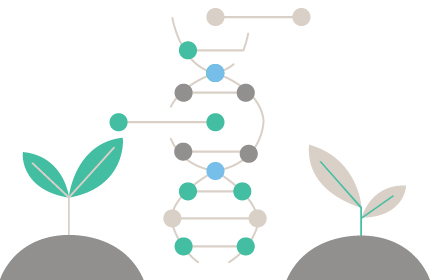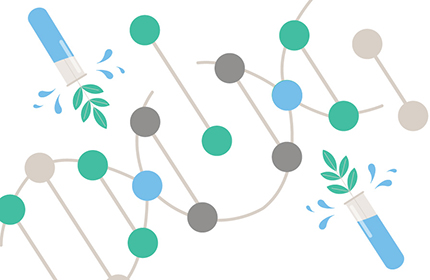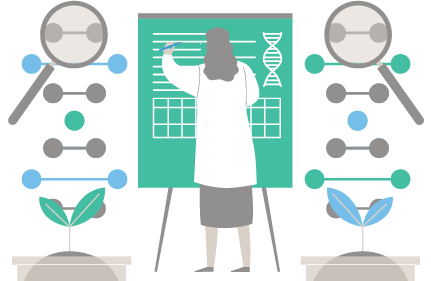Workshop 4: Enabling Regulatory Environment for Genome Editing in Agriculture in South Korea – Opportunities & Possibilities
-
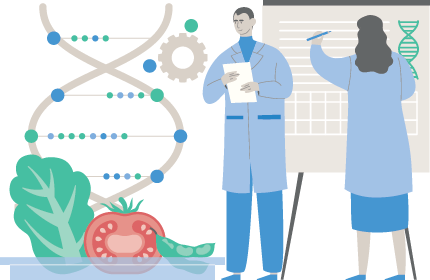
December 10, 2024-December 11, 2024
9:00 am - 5:00 pmHotel InterCiti
Daejeon, South Korea
The Agriculture and Food Systems Institute (AFSI) organized the fourth workshop in the series on Gene Edited Plants: Context and Communication for Plant Breeding Innovation on December 10-11, 2024 in Daejeon, South Korea. “Enabling Regulatory Environment for Genome Editing in Agriculture in South Korea: Opportunities & Possibilities” aimed to improve dialogue between South Korean government officials, scientists, and other stakeholders, and enable effective communication on issues related to new plant breeding technologies. Supported by a grant from CropLife International, this event brought together a diverse set of stakeholders in agricultural biotechnology. Attendees included scientists and experts from the government, private sector, academia, Korea Biosafety Clearinghouse, other public sector institutions, law firms, and scientific organizations involved in policy discussions in the country. Building on the success of previous trainings, this in-person activity fostered a science-based and transparent exchange of ideas around the regulation of genome edited agricultural products in South Korea.
Program
Overview
Spanning two days, this workshop was divided into four technical sessions:
Session 1: Genome Editing in the Context of Agriculture, Food Security, and Innovation
This session highlighted the products of genome editing at different stages of development and commercialization, around the world and particularly, in South Korea. The science behind the creation of these products was presented to enable a better understanding of this suite of technologies in the context of traditional plant breeding and provide background for subsequent discussions during this workshop.
Session 2: Global Regulatory Landscape for Genome Edited Plants
This session covered varying approaches that countries worldwide have taken in relation to the handling and regulation of genome edited organisms. The talks in this session focused on the drivers for expedited pathways to review and approve genome edited products.
Session 3: Socioeconomic Considerations in Adopting Innovative Technologies
This session will encourage participants to consider the factors that matter when adopting new plant breeding techniques (or not) and the benefits they could offer, both in terms of addressing challenges in agriculture in the wake of climate change and the broad range of traits offered to end users.
Session 4: Considerations for Intellectual Property Rights for Plant Varieties
This session focused on licensing rights and intellectual property (IP) issues associated with genome editing technologies, particularly CRISPR-Cas, in the context of commercialization by product developers. Although the IP landscape around genome editing is complex, both big and small agricultural biotechnology companies are nevertheless continuing to develop products. In this context, a favorable regulatory environment can help enable the commercialization of these products.
Background
Supported by the United States Department of Agriculture Foreign Agriculture Service (USDA FAS) New Technologies and Production Methods Division, AFSI organized three preceding technical events under this series:
- Workshop 1, held virtually on April 22, 2021, introduced gene editing and featured presentations on the science, regulatory landscape, and communication.
- Workshop 2, held virtually from July 19-23, 2021, allowed discussions among South Korean stakeholders to continue over the course of one week and focused on improving their understanding of the technology and varying approaches to regulating the products of gene editing.
- Workshop 3, held in person on July 25-26, 2022 at the Plaza Hotel in Seoul, covered key concepts in problem formulation, Codex principles, the basics of food and feed safety assessment for whole foods, and the application of safety assessment concepts to products of gene editing.
Agenda - Day 1
Tuesday, December 10, 2024 | 9:00 am – 5:40 pm
| Time | Title/Activity | Presenter/Lead | |
| Session 1: Genome Editing in the Context of Agriculture, Food Security, and Innovation | |||
| 10:00 am | Introduction to the Program and Review of the Agenda | Dr. Bhavneet Bajaj Senior Manager, Agriculture & Food Systems Institute (AFSI), USA |
|
| 10:20 am | Virtual Greeting | Congresswoman Soo Jin Choi South Korea |
|
| 10:30 am | Opening Remarks | Dr. Jang Ryol Liu President, Future Food Resources Forum and Member, Korean Academy of Science and Technology, South Korea |
|
| 10:45 am | Global Status of Genome Edited Organisms | Dr. Andrew Roberts Chief Executive Officer, Agriculture & Food Systems Institute (AFSI), USA |
|
| 11:05 am | Research & Development in Agricultural Biotechnology and New Plant Breeding Techniques in South Korea: An Overview | Dr. Jae-Yean Kim Professor, Gyeongsang National University and Founder, Nulla Bio, South Korea |
|
| 11:25 am | Tea Break | ||
| 12:00 pm | Traditional Plant Breeding and Precision Breeding: History and Outlook on Similarities and Differences | Dr. Wayne Parrott Distinguished Research Professor, Institute of Plant Breeding, Genetics & Genomics, University of Georgia, USA |
|
| 12:20 pm | Moderated Q&A | Dr. Bhavneet Bajaj | |
| 12:45 pm | Lunch | ||
| Session 2: Global Regulatory Landscape for Genome Edited Plants | |||
| 1:45 pm | The U.S. Food and Drug Administration’s Approach to Genome Edited Products | Mr. Jason Dietz (virtual) Senior Policy Advisor, Food and Drug Administration (FDA), USA |
|
| 2:05 pm | Overview of the Genome Editing Regulations in Argentina | Mr. Andrés Frankow Biologist, Coordination of Innovation and Biotechnology, Secretariat of Agriculture, Livestock, and Fisheries, Argentina |
|
| 2:25 pm | Genome Editing Regulations in Brazil: The Case of Gene Edited Sugarcane | Dr. Hugo Molinari R&D Innovation Director, SEMPRE AgTech, Brazil |
|
| 3:00 pm | Tea Break | ||
| 3:20 pm | Genome Editing Regulations in Singapore | Ms. Emily Teo (virtual) Senior Scientist, National Centre for Food Science, Singapore Food Agency, Singapore |
|
| 3:40 pm | Genome Editing Regulations in the Philippines | Dr. Claro Mingala (virtual) Scientist IV, Philippine Carabao Center, Department of Agriculture, Philippines |
|
| Ms. Alexis Marie Sagisi Licensed Agriculturist, Bureau of Plant Industry, Department of Agriculture, Philippines |
|||
| 4:10 pm | Status of Regulations on Genome Editing in the European Union | Mr. Jens Kahrmann Lawyer, Genetic Engineering Department, Federal Office of Consumer Protection, Germany |
|
| 4:30 pm | Developments in Regulations on Genome Edited Plants in South Korea | Mr. Junesung Jo Senior Director and Legal Counsel, Legal Affairs, ToolGen, Inc., South Korea |
|
| 4:50 pm | Moderated Q&A | Dr. Andrew Roberts | |
| 5:40 pm | Close of Day 1 | ||
Agenda - Day 2
Wednesday, December 11, 2024 | 9:00 am – 4:45 pm
| Time | Title/Activity | Presenter/Lead | |
| Session 3: Socioeconomic Considerations in Adopting Innovative Technologies | |||
| 10:00 am | Recap of Day 1 and Review of Agenda for Day 2 | Dr. Bhavneet Bajaj | |
| 10:05 am | Socio-Economic Considerations and Potential Implications for Gene-Edited Crops | Dr. Stuart Smyth Professor and Agri-Food Innovation & Sustainability Enhancement Chair, University of Saskatchewan, Canada |
|
| 10:25 am | Consumer Acceptance of Gene-Edited Products | Dr. R. Karina Gallardo (virtual) Professor and Extension Specialist, School of Economic Sciences, Puyallup Research and Extension Center, Washington State University, USA |
|
| 10:45 am | Moderated Q&A | Dr. Bhavneet Bajaj | |
| 11:00 am | Tea Break | ||
| 11:15 am | Introduction to Case Studies | Dr. Bhavneet Bajaj | |
Case Study Discussion
|
Moderated Breakout Groups | ||
| 1:15 pm | Lunch | ||
| Session 4: Considerations for Intellectual Property Rights for Plant Varieties | |||
| 2:15 pm | Basics of Patenting: Why Do Scientists Patent Their Inventions? | Mr. Jason Kim Patent Attorney, Lee & Ko, South Korea |
|
| 2:35 pm | Intellectual Property (IP) and Legal Landscape in South Korea and the Commercial Impact on Genome Editing | Mr. John Kim Partner and Senior Foreign Patent Attorney, Lee & Ko, South Korea |
|
| 2:55 pm | Moderated Q&A | Dr. Andrew Roberts | |
| 3:10 pm | Tea Break | ||
| 3:30 pm | Case Study Presentation: GABA Tomatoes in Japan | Dr. Minako Sumiyoshi Global Head of Regulatory Affairs, Sanatech Seed Co., Ltd., Japan |
|
| 3:50 pm | Case Study Presentation: Genome Edited Rice in India | Dr. Satendra Kumar Mangrauthia (virtual) Senior Scientist, Institute of Rice Research, Indian Council of Agricultural Research (ICAR), India |
|
| 4:10 pm | Moderated Q&A | Dr. Bhavneet Bajaj | |
| 4:30 pm | Participant Survey | Dr. Bhavneet Bajaj | |
| 4:45 pm | Close of Workshop | ||
Steering Committee & Speakers
The Agriculture & Food Systems Institute (AFSI) would like to thank our Steering Committee members, whose invaluable support made our training activities in South Korea possible, and all the speakers for contributing their expertise to the workshop.
Dr. Chee Hark Harn
Senior Managing Director, Seed R&BD Division, ToolGen Inc., South Korea
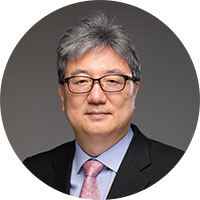 Dr. Chee Hark Harn is the Senior Managing Director of the Seed R&BD Division at ToolGen Inc. Since 2018, ToolGen Inc. has been developing new genetic resources and seeds using CRISPR/Cas9 technology. For his B.S., Dr. Harn majored in biology at Chung-Ang University in Korea. He then moved to the USA, where he earned an M.S. from Oregon State University and a Ph.D. from Rutgers University. As a graduate student, he built up his science background in genetics, biochemistry, and plant molecular biology. For his postdoc training, he worked on plant biotechnology, focusing on starch and sucrose biosynthesis’s metabolic engineering. He went back to Korea in 1996 and worked at the Korea Research Institute of Bioscience and Biotechnology (KRIBB) as a research scientist for three years. He then moved to Nongwoo Bio Co., a seed company, where he served as a project leader, director of the Biotechnology Institute, and director of the R&D Headquarter.
Dr. Chee Hark Harn is the Senior Managing Director of the Seed R&BD Division at ToolGen Inc. Since 2018, ToolGen Inc. has been developing new genetic resources and seeds using CRISPR/Cas9 technology. For his B.S., Dr. Harn majored in biology at Chung-Ang University in Korea. He then moved to the USA, where he earned an M.S. from Oregon State University and a Ph.D. from Rutgers University. As a graduate student, he built up his science background in genetics, biochemistry, and plant molecular biology. For his postdoc training, he worked on plant biotechnology, focusing on starch and sucrose biosynthesis’s metabolic engineering. He went back to Korea in 1996 and worked at the Korea Research Institute of Bioscience and Biotechnology (KRIBB) as a research scientist for three years. He then moved to Nongwoo Bio Co., a seed company, where he served as a project leader, director of the Biotechnology Institute, and director of the R&D Headquarter.
Dr. Harn has served in several universities as an adjunct professor and academic societies as a president (Korean Society of Plant Biotechnology and Korean Society for Horticultural Science) during the last 20 years. He has also served as a committee member for many government-organized meetings, including the National Science & Technology Council, Korea
Dr. Donghern Kim
CEO, Mediprogen and Vice-President, Future Food Resources Forum, South Korea
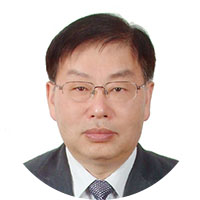 Dr. Donghern Kim worked with the Rural Development Administration (RDA) under the Ministry of Agriculture in Korea for 25 years in differing capacities. He held various positions at RDA, including director of the Crop Genomics Division, Crop Genetic Engineering Division, Biosafety Division, and Bio-Resources Management Division before retiring. He is an expert on GM technology and has extensive knowledge on the regulation of GMOs and GE crops in Korea. As the head of the Biosafety Division, Dr. Kim established the methodology of GMO risk assessment to comply with national GM crop regulatory rules. As the Director General of the Department of Agricultural Biotechnology, he oversaw RDA’s R&D projects, as well as the national programs for agricultural biotechnology.
Dr. Donghern Kim worked with the Rural Development Administration (RDA) under the Ministry of Agriculture in Korea for 25 years in differing capacities. He held various positions at RDA, including director of the Crop Genomics Division, Crop Genetic Engineering Division, Biosafety Division, and Bio-Resources Management Division before retiring. He is an expert on GM technology and has extensive knowledge on the regulation of GMOs and GE crops in Korea. As the head of the Biosafety Division, Dr. Kim established the methodology of GMO risk assessment to comply with national GM crop regulatory rules. As the Director General of the Department of Agricultural Biotechnology, he oversaw RDA’s R&D projects, as well as the national programs for agricultural biotechnology.
He has a Ph.D. from the University of Michigan and currently serves as the CEO of Mediprogen, a plant biotech company that uses soybean seeds as a platform for the production of valuable biopharmaceuticals and biosimilars. Since 2019, he has been serving as Vice-President of the Future Food Resources Forum, a non-profit advocating innovative technologies in agriculture, such as genetic engineering and gene editing.
Dr. Wayne Parrott
Distinguished Research Professor, Institute of Plant Breeding, Genetics & Genomics, University of Georgia, USA
 Dr. Wayne Parrott received a degree in agronomy from the University of Kentucky, and M.S. and Ph.D. degrees in plant breeding and plant genetics from the University of Wisconsin-Madison. He joined the faculty at the University of Georgia in 1988. Since then, he has published ~115 journal articles in refereed publications and 14 book chapters based on his research. He is actively engaged in training graduate students and postdoctoral fellows and teaches graduate-level courses in genetics and undergraduate courses in agroecology and sustainable agriculture.
Dr. Wayne Parrott received a degree in agronomy from the University of Kentucky, and M.S. and Ph.D. degrees in plant breeding and plant genetics from the University of Wisconsin-Madison. He joined the faculty at the University of Georgia in 1988. Since then, he has published ~115 journal articles in refereed publications and 14 book chapters based on his research. He is actively engaged in training graduate students and postdoctoral fellows and teaches graduate-level courses in genetics and undergraduate courses in agroecology and sustainable agriculture.
He is a past director of the University of Georgia’s Plant Center and served as a director for the NSF plant genome program in Washington and is currently the secretary for the American Society of Plant Biologists. He has served terms on the editorial boards of biotechnology journals. He is a past chair of the biotechnology section of the Crop Science Society of America and of the plant section of the Society for In Vitro Biology. He is a fellow of both societies, as well as of AAAS. He has traveled extensively throughout Latin America and other countries and advised legislators and regulators in the various countries on the requisites for a functional regulatory system that ensures the safety of modified products in agriculture.
Dr. Yong-Sam Kim
CEO, GenKOre
 Dr. Yong-Sam Kim holds B.A., M.S., and Ph.D. degrees from the Seoul National University, majoring in Agricultural Chemistry. He earned a Ph.D. degree with a thesis on an auxin binding protein. He was a research associate for Fred Hutchinson Cancer Research Center in 2011. Currently, his main research interests include the development of a novel genome editing technology and improvement of CRISPR technologies. His major achievement is the development of highly efficient CRISPR-Cpf1 and CRISPR-Cas12f systems through the engineering of CRISPR RNA. The engineered CRISPR-Cpf1 shows genome editing efficiency that surpasses that of CRISPR-Cas9 system. The highly efficient CRISPR systems are expected to harness genome editing-based gene therapy and the development of various plant varieties. He is also seeking to apply genome editing tools to facilitate the development of cancer-specific biomarkers by genome-engineering model animals. He is the CEO of GenKOre in Korea.
Dr. Yong-Sam Kim holds B.A., M.S., and Ph.D. degrees from the Seoul National University, majoring in Agricultural Chemistry. He earned a Ph.D. degree with a thesis on an auxin binding protein. He was a research associate for Fred Hutchinson Cancer Research Center in 2011. Currently, his main research interests include the development of a novel genome editing technology and improvement of CRISPR technologies. His major achievement is the development of highly efficient CRISPR-Cpf1 and CRISPR-Cas12f systems through the engineering of CRISPR RNA. The engineered CRISPR-Cpf1 shows genome editing efficiency that surpasses that of CRISPR-Cas9 system. The highly efficient CRISPR systems are expected to harness genome editing-based gene therapy and the development of various plant varieties. He is also seeking to apply genome editing tools to facilitate the development of cancer-specific biomarkers by genome-engineering model animals. He is the CEO of GenKOre in Korea.
Dr. Bhavneet Bajaj
Senior Manager, Agriculture & Food Systems Institute (AFSI), USA
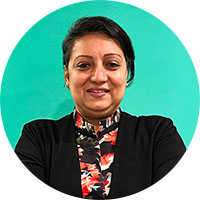 Dr. Bhavneet Bajaj joined the Agriculture & Food Systems Institute (AFSI) in July 2018 as Scientific Program Manager. She has been involved in projects related to safety assessment of foods and feeds derived from genetically engineered plants and serves as a resource person in providing technical support for capacity building programs in biotechnology. She was also the program lead for USDA-funded technical training for Chinese and Indonesian regulators and manages operations for both the Crop Composition Database and the World Nutrient Databases for Dietary Studies.
Dr. Bhavneet Bajaj joined the Agriculture & Food Systems Institute (AFSI) in July 2018 as Scientific Program Manager. She has been involved in projects related to safety assessment of foods and feeds derived from genetically engineered plants and serves as a resource person in providing technical support for capacity building programs in biotechnology. She was also the program lead for USDA-funded technical training for Chinese and Indonesian regulators and manages operations for both the Crop Composition Database and the World Nutrient Databases for Dietary Studies.
Prior to joining AFSI, Dr. Bajaj was a Visiting Scientist at the Sustainable Agricultural Systems Laboratory, Agricultural Research Service, USDA, where she worked on carotenoid pathway regulation in tomatoes. Before then, she was Associate Investigator with the Plant Protection group at (then) DuPont, where she devised a metabolic engineering strategy for insect control in soybean. While in India, she was an Assistant Professor at Jaipur National University, where she taught genetic engineering, enzymology, and biochemistry courses to M.Sc. level students. Her research work over the past 12 years involved plant secondary metabolites of nutritional, agricultural, and medicinal importance.
Mr. Jason Dietz
Senior Policy Advisor, Food and Drug Administration (FDA), USA
 Mr. Jason Dietz is a Senior Policy Advisor for the Office of Food Additive Safety’s Center for Food Safety and Applied Nutrition (CFSAN) at the U.S. Food and Drug Administration. He advises on food biotechnology policy and is a trusted negotiator in multilateral international fora. He coordinates cross-cutting food biotechnology policy issues and international activities at CFSAN, providing policy advice on complex, high-priority issues related to regulation, legislation, and international trade. With more than 20 years of FDA regulatory experience, he is adept at addressing regulatory and compliance challenges in the food and agriculture industry
Mr. Jason Dietz is a Senior Policy Advisor for the Office of Food Additive Safety’s Center for Food Safety and Applied Nutrition (CFSAN) at the U.S. Food and Drug Administration. He advises on food biotechnology policy and is a trusted negotiator in multilateral international fora. He coordinates cross-cutting food biotechnology policy issues and international activities at CFSAN, providing policy advice on complex, high-priority issues related to regulation, legislation, and international trade. With more than 20 years of FDA regulatory experience, he is adept at addressing regulatory and compliance challenges in the food and agriculture industry
Mr. Andrés Frankow
Biologist, Coordination of Innovation and Biotechnology, Secretariat of Agriculture, Livestock, and Fisheries, Argentina
 Mr. Andrés Frankow, a biologist who graduated from the University of Buenos Aires, has extensive experience in project management, biosafety analysis, and regulatory compliance within the Coordination of Innovation and Biotechnology at Argentina’s Secretariat of Agriculture, Livestock, and Fisheries. He is currently completing a master’s degree in bioinformatics and biological systems at the National University of Quilmes. For the past two decades, he has specialized in regulatory affairs related to genetically modified organisms (GMOs) and materials developed through new breeding techniques (NBTs), conducting risk assessments for confined releases, deregulation for commercial releases, and advising on regulatory updates for both GMO and NBT policies. He also contributes to the design of guidelines and frameworks specifically for NBT and GMO evaluations.
Mr. Andrés Frankow, a biologist who graduated from the University of Buenos Aires, has extensive experience in project management, biosafety analysis, and regulatory compliance within the Coordination of Innovation and Biotechnology at Argentina’s Secretariat of Agriculture, Livestock, and Fisheries. He is currently completing a master’s degree in bioinformatics and biological systems at the National University of Quilmes. For the past two decades, he has specialized in regulatory affairs related to genetically modified organisms (GMOs) and materials developed through new breeding techniques (NBTs), conducting risk assessments for confined releases, deregulation for commercial releases, and advising on regulatory updates for both GMO and NBT policies. He also contributes to the design of guidelines and frameworks specifically for NBT and GMO evaluations.
He has received extensive training in risk assessments, biotech communication, and database management and has conducted training sessions in risk analysis and biosafety in agricultural biotechnology. In 2022, he co-authored the publication, “Update of Argentina’s Regulatory Policies on Environmental Risk Assessment” (Front. Bioeng. Biotechnol. 9:834589. doi: 10.3389/fbioe.2021.834589).
Dr. R. Karina Gallardo
Professor and Extension Specialist, School of Economic Sciences, Puyallup Research and Extension Center, Washington State University, USA
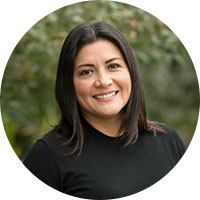 Dr. R. Karina Gallardo is a Professor and Extension Specialist in the School of Economic Sciences. She is stationed at the Puyallup Research and Extension Center. Her primary research and outreach program goal is to enhance value-added agribusiness opportunities for specialty crops in Washington State. Her research assesses agri-food supply chain acceptance of new production and processing food technologies. On the production side, her research seeks to advance the understanding of profitability and other factors affecting growers’ adoption of new technologies, such as new cultivars, improved pest management systems, and labor-enhancing mechanisms. On the demand side, Dr. Gallardo’s program seeks to understand the different factors impacting consumers’ acceptance of new agri-food technologies.
Dr. R. Karina Gallardo is a Professor and Extension Specialist in the School of Economic Sciences. She is stationed at the Puyallup Research and Extension Center. Her primary research and outreach program goal is to enhance value-added agribusiness opportunities for specialty crops in Washington State. Her research assesses agri-food supply chain acceptance of new production and processing food technologies. On the production side, her research seeks to advance the understanding of profitability and other factors affecting growers’ adoption of new technologies, such as new cultivars, improved pest management systems, and labor-enhancing mechanisms. On the demand side, Dr. Gallardo’s program seeks to understand the different factors impacting consumers’ acceptance of new agri-food technologies.
Mr. Junesung Jo
Senior Director and Legal Counsel, Legal Affairs, ToolGen, Inc., South Korea
 Mr. Junesung Jo serves as Senior Director of Legal Affairs at ToolGen, Inc., a pioneering genome-editing company in Republic of Korea at the forefront of CRISPR/Cas9 technology innovation in agricultural biotechnology and seed development. Beginning his career at Samsung Group, he later pursued his passion for law, earning his law degree and becoming a licensed attorney in Korea. His unique professional journey includes significant experience as a litigation lawyer and a distinguished role as Policy Secretary to a Member of the National Assembly, where he gained deep insight into legislative and regulatory frameworks.
Mr. Junesung Jo serves as Senior Director of Legal Affairs at ToolGen, Inc., a pioneering genome-editing company in Republic of Korea at the forefront of CRISPR/Cas9 technology innovation in agricultural biotechnology and seed development. Beginning his career at Samsung Group, he later pursued his passion for law, earning his law degree and becoming a licensed attorney in Korea. His unique professional journey includes significant experience as a litigation lawyer and a distinguished role as Policy Secretary to a Member of the National Assembly, where he gained deep insight into legislative and regulatory frameworks.
At ToolGen and other innovative startups, Mr. Jo has demonstrated exceptional expertise in regulatory compliance, corporate legal affairs, and strategic business development. His comprehensive experience spans successful IPO execution, investor relations, and the development of regulatory-compliant business models in the biotechnology sector. This diverse background enables him to bridge the gap between cutting-edge biotechnology and regulatory frameworks, contributing to the advancement of genome-editing technologies in agriculture.
Mr. Jens Kahrmann
Lawyer, Genetic Engineering Department, Federal Office of Consumer Protection, Germany
 Mr. Jens Kahrmann has worked with the Genetic Engineering Department of Germany’s Federal Office of Consumer Protection and Food Safety since October 2015. He is a fully qualified lawyer with a master’s degree in law. He is involved in various publishing activities related to European and German genetic engineering law.
Mr. Jens Kahrmann has worked with the Genetic Engineering Department of Germany’s Federal Office of Consumer Protection and Food Safety since October 2015. He is a fully qualified lawyer with a master’s degree in law. He is involved in various publishing activities related to European and German genetic engineering law.
Dr. Jae-Yean Kim
Professor, Gyeongsang National University and Founder, Nulla Bio, South Korea
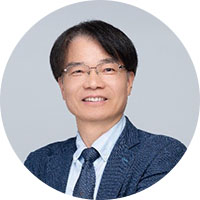 Dr. Jae-Yean Kim is a Professor in the Division of Applied Life Science at Gyeongsang National University and Founder of Nulla Bio, Inc. He studied the circadian clock, cell-to-cell communication, and plasmodesmata biology in his earlier professional stage. Recently, his research focus shifted to crop genome editing and the breeding field. He is a founder and the first president of the Korean Society of Plant Breeding Innovation, serving from 2019-2022. He is one of the pioneering researchers working in CRISPR-based plant breeding. He developed several plant-specific genome editing tools. His research direction was making plant genome editing tools, including targeted random mutagenesis tools and precise editing tools, such as prime editing and gene targeting. He has published more than 120 peer-reviewed articles (H-index 54, id10-index 100) and 20 patents.
Dr. Jae-Yean Kim is a Professor in the Division of Applied Life Science at Gyeongsang National University and Founder of Nulla Bio, Inc. He studied the circadian clock, cell-to-cell communication, and plasmodesmata biology in his earlier professional stage. Recently, his research focus shifted to crop genome editing and the breeding field. He is a founder and the first president of the Korean Society of Plant Breeding Innovation, serving from 2019-2022. He is one of the pioneering researchers working in CRISPR-based plant breeding. He developed several plant-specific genome editing tools. His research direction was making plant genome editing tools, including targeted random mutagenesis tools and precise editing tools, such as prime editing and gene targeting. He has published more than 120 peer-reviewed articles (H-index 54, id10-index 100) and 20 patents.
Mr. Jason Kim
Patent Attorney, Lee & Ko, South Korea
 Mr. Jason Kim specializes in intellectual property law, having previously worked in the U.S. as a patent attorney in two different boutique firms, primarily focusing on patent prosecution and IP counseling. In his prior position, Mr. Kim counseled various U.S. and international clients in diverse technical areas, including chemistry, life science, biotechnology, diagnostics, pharmaceutics, and industrial engineering. Since joining Lee & Ko, Mr. Kim’s practice has focused on patent and healthcare litigation, trade secrets, unfair competition, IP transaction and licensing, IP enforcement in both KTC and ITC proceedings, pharmaceutical and healthcare regulatory issues, IP strategy consulting, trademark, and copyrights, in addition to his other expertise for both domestic and international clients, with technical areas further including material science, mechanical engineering, semiconductors, industrial chemistry, software, agricultural science, and biomedical engineering.
Mr. Jason Kim specializes in intellectual property law, having previously worked in the U.S. as a patent attorney in two different boutique firms, primarily focusing on patent prosecution and IP counseling. In his prior position, Mr. Kim counseled various U.S. and international clients in diverse technical areas, including chemistry, life science, biotechnology, diagnostics, pharmaceutics, and industrial engineering. Since joining Lee & Ko, Mr. Kim’s practice has focused on patent and healthcare litigation, trade secrets, unfair competition, IP transaction and licensing, IP enforcement in both KTC and ITC proceedings, pharmaceutical and healthcare regulatory issues, IP strategy consulting, trademark, and copyrights, in addition to his other expertise for both domestic and international clients, with technical areas further including material science, mechanical engineering, semiconductors, industrial chemistry, software, agricultural science, and biomedical engineering.
Mr. John Kim
Partner and Senior Foreign Patent Attorney, Lee & Ko, South Korea
 Mr. John Kim is a trial lawyer specializing in cross-border litigation and international dispute resolution. As a veteran of the “Smartphone Wars” around the world, John has broad experience handling global intellectual property and antitrust disputes. Prior to joining Lee & Ko, he was a partner resident in the Silicon Valley office of Quinn Emanuel Urquhart & Sullivan, and he served as Assistant General Counsel of IP for Samsung Electronics in Seoul, Korea. John has negotiated patent and technology licenses across a broad range of cutting-edge industries, and he has represented clients regarding standard-essential patent licensing issues before tribunals and competition authorities around the world.
Mr. John Kim is a trial lawyer specializing in cross-border litigation and international dispute resolution. As a veteran of the “Smartphone Wars” around the world, John has broad experience handling global intellectual property and antitrust disputes. Prior to joining Lee & Ko, he was a partner resident in the Silicon Valley office of Quinn Emanuel Urquhart & Sullivan, and he served as Assistant General Counsel of IP for Samsung Electronics in Seoul, Korea. John has negotiated patent and technology licenses across a broad range of cutting-edge industries, and he has represented clients regarding standard-essential patent licensing issues before tribunals and competition authorities around the world.
John combines his corporate background with law firm experience to provide a wide range of clients with legal advice and counseling grounded in the practical realities of global businesses.
Dr. Jang Ryol Liu
President, Future Food Resources Forum and Member, Korean Academy of Science and Technology, South Korea
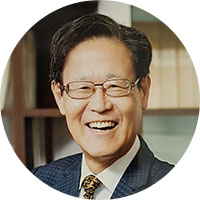 Dr. Liu earned his B.S. in botany from Seoul National University, an M.S. in biological sciences from California Polytechnic State University (SLO), and a Ph.D. in horticulture from Michigan State University. He completed postdoctoral studies in plant biotechnology at the University of Florida before joining KRIBB as a Senior Research Scientist in 1985. After retiring from KRIBB in 2012, he served as a visiting research scientist/professor at DGIST for two years. In 2015, he returned to KRIBB as a Research Fellow. Since 2017, Dr. Liu has been Director of the Center for the Support of Science and Technology Honorees at KAST, where he became a member in 2000. He has held presidencies in multiple scientific societies, including the Korean Society for Plant Biotechnology, the Korean Society of Plant Biologists, and the International Association of Plant Biotechnology. Currently, he is President of the Future Food Resources Forum.
Dr. Liu earned his B.S. in botany from Seoul National University, an M.S. in biological sciences from California Polytechnic State University (SLO), and a Ph.D. in horticulture from Michigan State University. He completed postdoctoral studies in plant biotechnology at the University of Florida before joining KRIBB as a Senior Research Scientist in 1985. After retiring from KRIBB in 2012, he served as a visiting research scientist/professor at DGIST for two years. In 2015, he returned to KRIBB as a Research Fellow. Since 2017, Dr. Liu has been Director of the Center for the Support of Science and Technology Honorees at KAST, where he became a member in 2000. He has held presidencies in multiple scientific societies, including the Korean Society for Plant Biotechnology, the Korean Society of Plant Biologists, and the International Association of Plant Biotechnology. Currently, he is President of the Future Food Resources Forum.
Dr. Satendra Kumar Mangrauthia
Senior Scientist, Institute of Rice Research, Indian Council of Agricultural Research (ICAR), India
 Dr. Satendra Kumar Mangrauthia is a Senior Scientist of Plant Biochemistry at the ICAR-Indian Institute of Rice Research, Dr. Mangrauthia earned his bachelor’s degree in agriculture and animal husbandry from C.S.A. University of Agriculture & Technology Kanpur (2001). His master’s (2004) and doctorate degrees (2008) were in biochemistry, from the Indian Agriculture Research Institute in New Delhi. He did a postdoc from Purdue University in the USA and also was a visiting scientist at Heinrich Heine University in Germany (2019) and Louisiana State University in the USA (2020). He is known for his creative and path-breaking research in the area of hot-pathogen interaction, pathogen genomics, epigenetics, and molecular mechanisms of environmental stresses. His laboratory at the Indian Institute of Rice Research developed diagnostic tools for the identification of RTBV and RTSV viruses, genome sequencing and gene characterization of RTBV and RTSV, the molecular and physiological basis of host-virus interaction, and the development of virus and fungal resistant plants using RNAi. His laboratory has also contributed to the understanding of the fundamentals of molecular mechanisms of environmental stresses (high temperature tolerance, low P tolerance) and the development and release of tolerant genetic stocks and heat tolerant rice varieties. Currently, Dr. Mangrauthia is leading a research program on the deployment of genome editing to create improved alleles in popular, elite, and mega rice cultivars of India. He has published over 100 research papers, 21 review papers, and 24 book chapters and authored four books. He has won several grants of DST, DBT, and ICAR to carry out research in frontier areas of plant biology. He is a reviewer of many high impact journals and an editor of Frontiers in Plant Science, BMC Plant Biology, Journal of Plant Biochemistry and Biotechnology, and Journal of Rice Research.
Dr. Satendra Kumar Mangrauthia is a Senior Scientist of Plant Biochemistry at the ICAR-Indian Institute of Rice Research, Dr. Mangrauthia earned his bachelor’s degree in agriculture and animal husbandry from C.S.A. University of Agriculture & Technology Kanpur (2001). His master’s (2004) and doctorate degrees (2008) were in biochemistry, from the Indian Agriculture Research Institute in New Delhi. He did a postdoc from Purdue University in the USA and also was a visiting scientist at Heinrich Heine University in Germany (2019) and Louisiana State University in the USA (2020). He is known for his creative and path-breaking research in the area of hot-pathogen interaction, pathogen genomics, epigenetics, and molecular mechanisms of environmental stresses. His laboratory at the Indian Institute of Rice Research developed diagnostic tools for the identification of RTBV and RTSV viruses, genome sequencing and gene characterization of RTBV and RTSV, the molecular and physiological basis of host-virus interaction, and the development of virus and fungal resistant plants using RNAi. His laboratory has also contributed to the understanding of the fundamentals of molecular mechanisms of environmental stresses (high temperature tolerance, low P tolerance) and the development and release of tolerant genetic stocks and heat tolerant rice varieties. Currently, Dr. Mangrauthia is leading a research program on the deployment of genome editing to create improved alleles in popular, elite, and mega rice cultivars of India. He has published over 100 research papers, 21 review papers, and 24 book chapters and authored four books. He has won several grants of DST, DBT, and ICAR to carry out research in frontier areas of plant biology. He is a reviewer of many high impact journals and an editor of Frontiers in Plant Science, BMC Plant Biology, Journal of Plant Biochemistry and Biotechnology, and Journal of Rice Research.
Dr. Claro Mingala
Scientist IV, Philippine Carabao Center, Department of Agriculture, Philippines
 Dr. Claro Mingala is currently appointed as the Officer-in-Charge Deputy Executive Director of the Philippine Carabao Center and provides technical oversight to the research for development (R4D) programs and activities of the agency. He is also the current Director of the DA-Biotechnology Program Office. Dr. Mingala also chairs the inter-agency group working on the regulatory policy for genetically modified animals and animal products. He has served the Department of Agriculture since 1996, joining mainly as a livestock biotechnologist. He has also served as the Livestock Biotechnology Center Chief of the Department. His fields of specialization are infectious diseases, immunology, and the development of disease diagnostics. In January 2021, under the Scientific Career System, he was conferred the title of Scientist IV.
Dr. Claro Mingala is currently appointed as the Officer-in-Charge Deputy Executive Director of the Philippine Carabao Center and provides technical oversight to the research for development (R4D) programs and activities of the agency. He is also the current Director of the DA-Biotechnology Program Office. Dr. Mingala also chairs the inter-agency group working on the regulatory policy for genetically modified animals and animal products. He has served the Department of Agriculture since 1996, joining mainly as a livestock biotechnologist. He has also served as the Livestock Biotechnology Center Chief of the Department. His fields of specialization are infectious diseases, immunology, and the development of disease diagnostics. In January 2021, under the Scientific Career System, he was conferred the title of Scientist IV.
Dr. Hugo Molinari
R&D Innovation Director, SEMPRE AgTech, Brazil
 Dr. Hugo Bruno Correa Molinari holds a bachelor’s degree in Agronomy from Londrina State University (2002), a master’s degree in Genetics and Molecular Biology (2003), a Ph.D. in Agronomy from the Federal University of Paraná (2006), as well as an MBA in Agribusiness from USP/ESALQ (2021). His international research experience includes roles as a Visiting Scientist at Rothamsted Research, UK (2010), and the Plant Gene Expression Center (PGEC-ARS/USDA), USA (2013).
Dr. Hugo Bruno Correa Molinari holds a bachelor’s degree in Agronomy from Londrina State University (2002), a master’s degree in Genetics and Molecular Biology (2003), a Ph.D. in Agronomy from the Federal University of Paraná (2006), as well as an MBA in Agribusiness from USP/ESALQ (2021). His international research experience includes roles as a Visiting Scientist at Rothamsted Research, UK (2010), and the Plant Gene Expression Center (PGEC-ARS/USDA), USA (2013).
He worked at EMBRAPA from 2007 to 2022, leading the Advanced Biotechnology Portfolio (2015-2022). Currently, he is the R&D and Innovation Director at SEMPRE Ag-Tech/WIN and a former Professor in USP/FGV’s Professional Master’s in Agribusiness (2008-2015). He also served as a CTNBio full Member (2017-2022), representing Biotechnology for the Ministry of Agriculture. He specializations include plant physiology, molecular biology, genetic engineering, genome editing, and GMO biosafety, with a focus on biotechnology and biological inputs for crops such as sugarcane, maize, and soybean.
Dr. Andrew Roberts
Chief Executive Officer, Agriculture & Food Systems Institute (AFSI), USA
 Dr. Andrew Roberts joined the Agriculture & Food Systems Institute (AFSI) in December 2009 as the Deputy Director of the Center for Environmental Risk Assessment (CERA), where he developed tools and materials for use in training and capacity building related to the problem formulation approach to environmental risk assessment and served as the coordinator for CERA’s capacity building projects under the USAID-funded South Asia Biosafety Program (SABP) and the World Bank-funded Partnership for Biosafety Risk Assessment and Regulation, in Bangladesh, Pakistan, and Vietnam. He also provided technical support for capacity building work in Brazil, India, Japan, Chile, and South Africa. In January 2015, he became the director of CERA, as well as the Center for Safety Assessment of Food and Feed (CSAFF), which worked on food and feed safety assessment for foods derived from genetically engineered plants. The two centers were later consolidated under the Research Foundation, for which he became Deputy Executive Director in January 2017. When the organization became the Agriculture & Food Systems Institute in 2020, his title shifted to Vice President – Biotechnology, and he assumed the role of Chief Executive Officer later that year.
Dr. Andrew Roberts joined the Agriculture & Food Systems Institute (AFSI) in December 2009 as the Deputy Director of the Center for Environmental Risk Assessment (CERA), where he developed tools and materials for use in training and capacity building related to the problem formulation approach to environmental risk assessment and served as the coordinator for CERA’s capacity building projects under the USAID-funded South Asia Biosafety Program (SABP) and the World Bank-funded Partnership for Biosafety Risk Assessment and Regulation, in Bangladesh, Pakistan, and Vietnam. He also provided technical support for capacity building work in Brazil, India, Japan, Chile, and South Africa. In January 2015, he became the director of CERA, as well as the Center for Safety Assessment of Food and Feed (CSAFF), which worked on food and feed safety assessment for foods derived from genetically engineered plants. The two centers were later consolidated under the Research Foundation, for which he became Deputy Executive Director in January 2017. When the organization became the Agriculture & Food Systems Institute in 2020, his title shifted to Vice President – Biotechnology, and he assumed the role of Chief Executive Officer later that year.
Prior to joining AFSI, Dr. Roberts worked at the U.S. Department of Agriculture (USDA) in several different capacities, all related to the regulation of agricultural biotechnology. He began his career at USDA as an AAAS Risk Policy Fellow in the Office of Science of Biotechnology Regulatory Services (BRS), the group responsible for regulating genetically engineered plants at USDA’s Animal Plant Health Inspection Service. After spending a year in the New Technologies office of the Foreign Agricultural Service serving as the lead for USDA’s efforts related to the Cartagena Protocol on Biosafety, he returned to BRS to serve in the International Affairs branch where he remained until joining AFSI.
Ms. Alexis Marie Sagisi
Licensed Agriculturist, Bureau of Plant Industry, Department of Agriculture, Philippines
 Ms. Alexis Marie Sagisi is a Licensed Agriculturist with a degree in Agricultural Biotechnology from the University of the Philippines Los Banos. She currently serves as Science Research Specialist I at the Biotechnology Office of the Bureau of Plant Industry. As part of her responsibilities in the office, she is actively involved in the processing of GM applications and regulatory determination of plant breeding innovation submissions. Her responsibilities include properly implementing established regulatory guidelines and policies, monitoring the post-approval compliance of approved GM events, and ensuring the compliance of technology and product developers’ applications and submissions.
Ms. Alexis Marie Sagisi is a Licensed Agriculturist with a degree in Agricultural Biotechnology from the University of the Philippines Los Banos. She currently serves as Science Research Specialist I at the Biotechnology Office of the Bureau of Plant Industry. As part of her responsibilities in the office, she is actively involved in the processing of GM applications and regulatory determination of plant breeding innovation submissions. Her responsibilities include properly implementing established regulatory guidelines and policies, monitoring the post-approval compliance of approved GM events, and ensuring the compliance of technology and product developers’ applications and submissions.
Dr. Stuart Smyth
Professor and Agri-Food Innovation & Sustainability Enhancement Chair, University of Saskatchewan, Canada
 Dr. Stuart Smyth is a Professor in the Department of Agricultural and Resource Economics at the University of Saskatchewan, where he holds the Agri-Food Innovation and Sustainability Enhancement Chair. His research focuses on sustainability, agriculture, innovation, and food. Dr. Smyth publishes twice-weekly blogs on these topics at: www.SAIFood.ca. With over 160 academic publications, Dr. Smyth is recognized as a leading expert on barriers to innovation and regulatory efficiency. Dr. Smyth specializes in research on regulatory barriers to food security, especially those that restrict investments into new plant breeding technologies, such as genome editing, and that delay or prevent the commercialization of genetically modified and genome-edited crops.
Dr. Stuart Smyth is a Professor in the Department of Agricultural and Resource Economics at the University of Saskatchewan, where he holds the Agri-Food Innovation and Sustainability Enhancement Chair. His research focuses on sustainability, agriculture, innovation, and food. Dr. Smyth publishes twice-weekly blogs on these topics at: www.SAIFood.ca. With over 160 academic publications, Dr. Smyth is recognized as a leading expert on barriers to innovation and regulatory efficiency. Dr. Smyth specializes in research on regulatory barriers to food security, especially those that restrict investments into new plant breeding technologies, such as genome editing, and that delay or prevent the commercialization of genetically modified and genome-edited crops.
Dr. Minako Sumiyoshi
Global Head of Regulatory Affairs, Sanatech Seed Co., Ltd., Japan
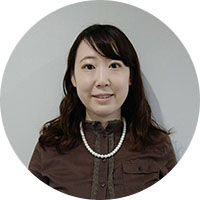 Dr. Minako Sumiyoshi is the Global Head of Regulatory Affairs at Sanatech Seed Co., Ltd., the world’s first company to sell the CRISPR tomato. She is in charge of plant biotech regulatory issues. Before joining Sanatech, she was engaged in supporting the Strategic Innovation Promotion Program (SIP) at the University of Tsukuba, Japan, which is the national project on gene edited crops and social acceptance of gene edited food. She completed her graduate level research from the School of Life and Environmental Sciences, University of Tsukuba, where she specialized in plant physiology.
Dr. Minako Sumiyoshi is the Global Head of Regulatory Affairs at Sanatech Seed Co., Ltd., the world’s first company to sell the CRISPR tomato. She is in charge of plant biotech regulatory issues. Before joining Sanatech, she was engaged in supporting the Strategic Innovation Promotion Program (SIP) at the University of Tsukuba, Japan, which is the national project on gene edited crops and social acceptance of gene edited food. She completed her graduate level research from the School of Life and Environmental Sciences, University of Tsukuba, where she specialized in plant physiology.
Ms. Emily Teo
Senior Scientist, National Centre for Food Science, Singapore Food Agency, Singapore
 Ms. Emily Teo is a senior scientist on the bioengineering team at the Singapore Food Agency’s National Centre for Food Science. She has 20 years of experience in food safety areas related to GMOs and microbiology. She has been involved in the safety assessments of genetically modified food and laboratory operations for GMO analysis and meat/fish speciation and has also contributed to the development of Singapore’s regulatory framework for genome-edited crops used in food. She has an Honor’s degree in Biomedical Science from the National University of Singapore.
Ms. Emily Teo is a senior scientist on the bioengineering team at the Singapore Food Agency’s National Centre for Food Science. She has 20 years of experience in food safety areas related to GMOs and microbiology. She has been involved in the safety assessments of genetically modified food and laboratory operations for GMO analysis and meat/fish speciation and has also contributed to the development of Singapore’s regulatory framework for genome-edited crops used in food. She has an Honor’s degree in Biomedical Science from the National University of Singapore.

